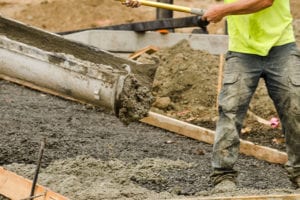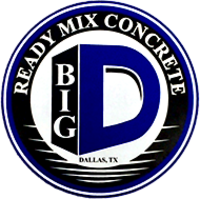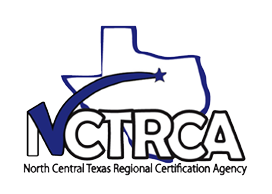Ready Mix Concrete Quality Testing Methods
Big D Ready Mix has been in the cement business in Dallas, TX, for quite some time now and has experienced everything related to concrete. We know how to get it perfectly cast, what’s the best way to cure it, and how it should be placed. But the most important aspect of concrete is how will it be tested?
On-field testing of ready-mix concrete can happen during installation or during an investigation of installed concrete in order to determine its strength qualities.

Concrete slump tests
Slump testing your concrete can help you evaluate the flow characteristics of freshly mixed concrete. If you wish to do a slump test, you need to place concrete into an inverted cone and use a metal rod to tamp down the concrete after each stage properly.
After the cone is full, you need to lift it off the working surface by using angles on each side of the cone, which causes the concrete to subside or slump on the ground due to gravity. The total difference between its original height and slumped height is then measured; this is recorded as the slump.
Ideally, a slump ranging from 4 to 5 inches should be considered a perfect balance between consistency and workability. Anything less than this range can be hard to work with, while anything greater can segregate during placement.
Air content testing
Air is entrained inside concrete to provide help in expansion and contraction capabilities, particularly in places that experience a lot of swings in temperature. Air content testing of concrete can be conducted to determine if the delivered concrete has the required air content specifications established by an engineer.
In order to conduct an air content test, a field technician will fill a circular metal base that has three lifts of concrete, which are stamped by using a metal rod which is similar to the technique used for slump testing.
Once your base is full, a metal lid that has a pressure guard attached to its surface is placed on top, and all parts are locked together. A hand pump is then used to pressurize your device to a particular calibration point, and it is then allowed to stabilize for a while.
After the stabilization process is completed, all the pressure is released, and the technician can read the concrete air content from the dial attached to the device.
Unit weight
Measuring the unit weight of concrete is a relatively easy task. Fresh concrete is placed inside an open container of known weight and volume in order to provide the unit weight or density of your concrete. It is typically reported in pounds per cubic foot.
On-field testing of existing concrete
Retrofits of existing structures and forensic investigations may sometimes require knowledge of an existing concrete structure’s total strength. There are two main ways you can establish the strength of your concrete. They are: destructive and non-destructive.
Schmidt rebound hammer
The main way of non-destructive testing of your concrete is by using a Schmidt rebound hammer. This hammer works by firing a spring-loaded mass onto your concrete and measuring the total amount of rebound off the surface.
This value can then be compared with a conversion chart to give you a rough estimate of your concrete structure’s overall compressive strength. Typically, you will have to calibrate your hammer before use and may have to test several points to establish an average value.
Destructive concrete testing
To obtain an even more accurate value of concrete compressive strength, you can choose to go for a destructive testing method.
If you decide to go for this method, you will have to get a concrete cylinder removed from an existing structure and get it delivered to a laboratory for further testing. They will use the same method to cylinders from recently poured concrete. Given below are a few comprehensive laboratory tests.
Comprehensive strength laboratory test
To determine if the concrete delivered and placed in a construction site meets its required strength needs as established by an engineer. Laboratory tests are conducted on unrepresentative cylinders of concrete from the project site.
These cylinders are usually created on-field during concrete placement and are chosen from random locations during the concrete pouring process. These cylinders are usually allowed to cure on the field for a few days before getting picked up and delivered to a laboratory for further testing.
Flexural testing of concrete
In addition to the previous test (compressive strength test), the concrete is installed onto an aircraft runway and often undergoes a tensile strength or a flexural print test.
These testing specimens are ideally created in the shape of a rectangular beam which, after being cured, is subject to loads on both ends until it snaps from the center, providing engineers with the required measure of concrete’s ability to withstand high bending forces.
Want to find out more about concrete? Get in touch with Big D Ready Mix Concrete today!
Here at Big D Ready Mix Concrete, our experts have more than enough experience and knowledge to answer all your questions. We can also assist you with your residential concrete and commercial concrete needs for all types of projects.
Our team of experts can provide you with specially tailored high-strength wall mixes based on all your needs and wants. If you wish to ask our professionals any questions related to concrete, you can give us a call at (972) 737-7976 or contact us online and we will clear all your doubts.
Looking for the best ready mix concrete supplier in Dallas, TX?
Big D Ready Mix Concrete offers you high-quality concrete products and excellent service!
Sister Companies


Our Certifications

Small Business Enterprise
Women Business Enterprise
Disadvantaged Business Enterprise
About Us
Big D Ready Mix Concrete has been serving clients in the Dallas, TX area since 2002, with over 400 utility mixes, high-strength wall mixes, exposed aggregate mixes, flexural strength mixes, stamp concrete mixes, flowable fill mixes, grout mixes, and trailer pump mixes.
Contact Information
10361 Bickham Rd
Dallas, TX 75220
(972) 737-7976
Email Us
Monday-Saturday 5am to 6pm
Dispatch Hours: Project Dependent